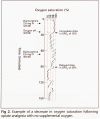Abstract
Objective
To assess the incidence and degree of hypoxaemia in patients with acute myocardial infarction and evaluate the nation-wide perception and usage of oxygen therapy.
Design
Postal survey of all coronary care units (CCU) in England of their use of prescribed oxygen and pulse oximetry. Prospective randomised study of 50 patients presenting within 24 hours of onset of myocardial infarction, half of whom received oxygen therapy. Oxygen saturation (SpO2) as continuously measured by pulse oximetry, and arrhythmias and ST segment changes were recorded on simultaneous 24-hour ambulatory Holter monitors.
Results
In 53% of UK coronary care units oxygen is not routinely prescribed but in only 3% is a pulse oximeter used to aid management. In patients presenting with acute myocardial infarction the incidence of hypoxaemia (SpO2 < 90%) was 70% and severe hypoxaemia 35% in those not given oxygen, compared with only 27% and 4% in patients given oxygen therapy. The only patient to receive oxygen on clinical grounds had an oxygen saturation of 71%. Severe hypoxaemia (SpO2 < 80%) occurred significantly less often (1 and 7 patients, p < 0.05) in patients given oxygen. There were no differences in arrhythmias or ST segment changes between groups.
Conclusion
Hypoxaemia occurs frequently in patients in the first 24 hours after acute myocardial infarction. It is effectively and easily treated with supplemental oxygen which can be guided by pulse oximetry. This is rarely done. Measurements of oxygen saturation are therefore justified in all patients to guide oxygen therapy unless there is a decision to give all patients supplemental oxygen: this we believe to be unnecessary.
Full text
PDF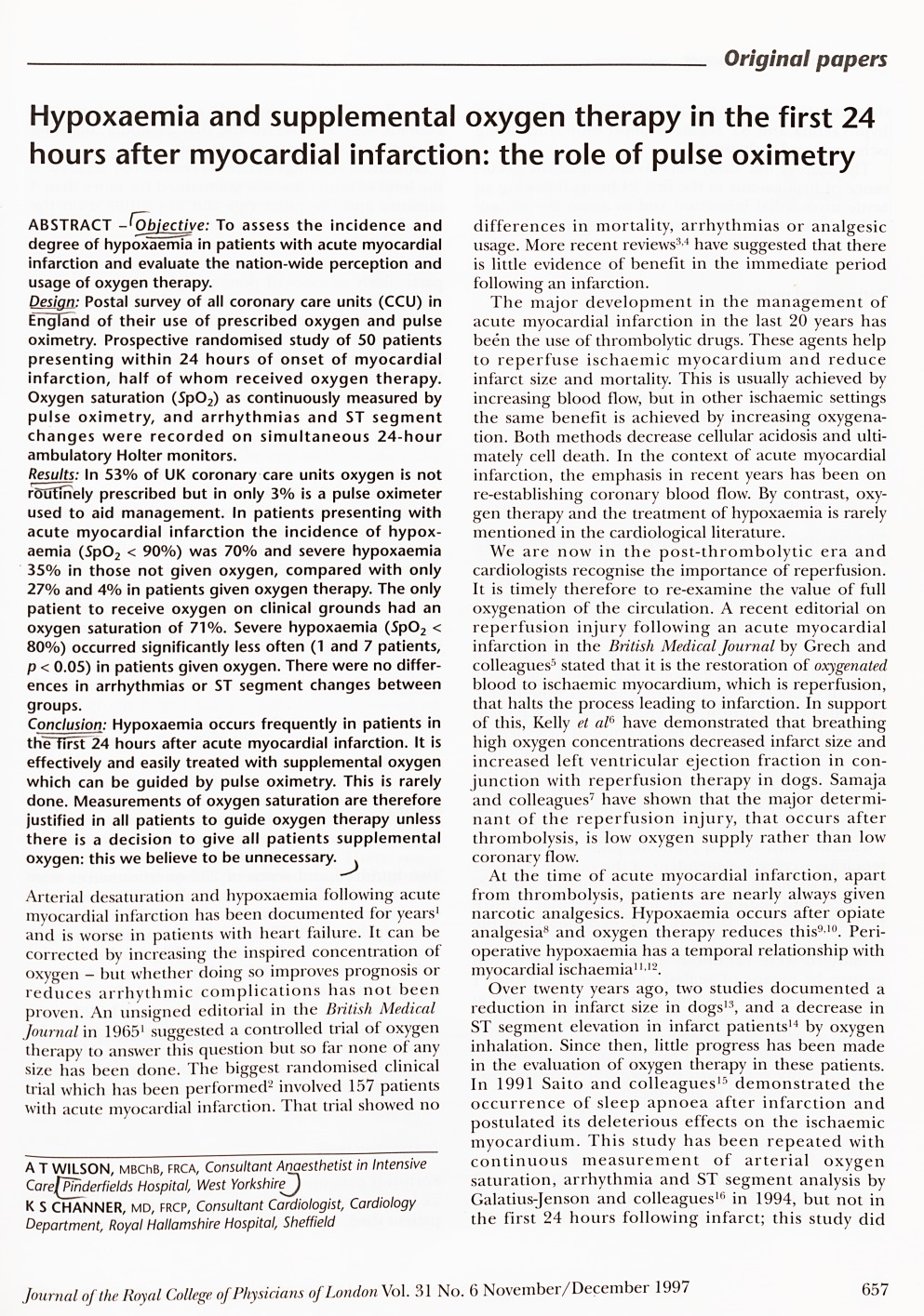
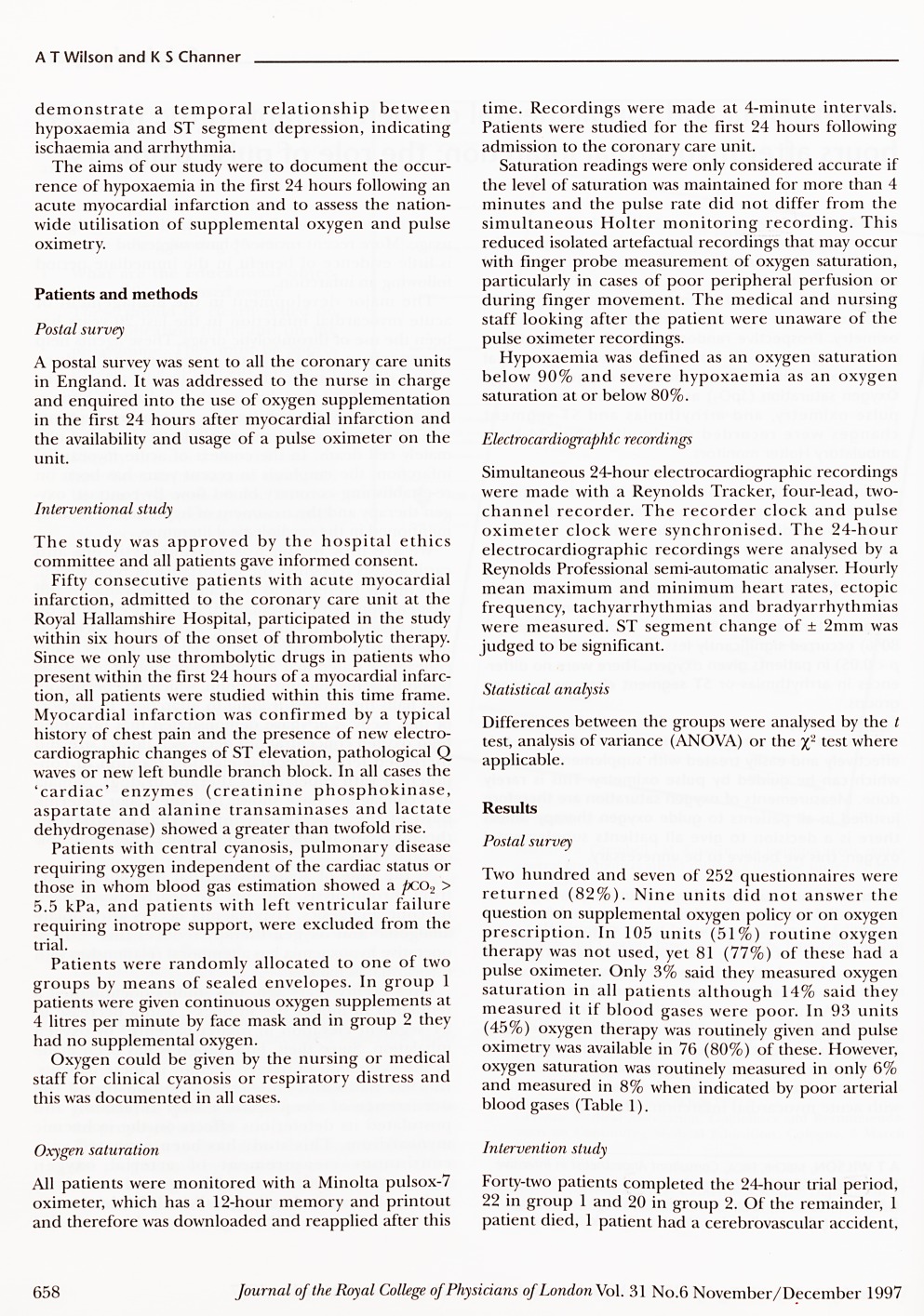
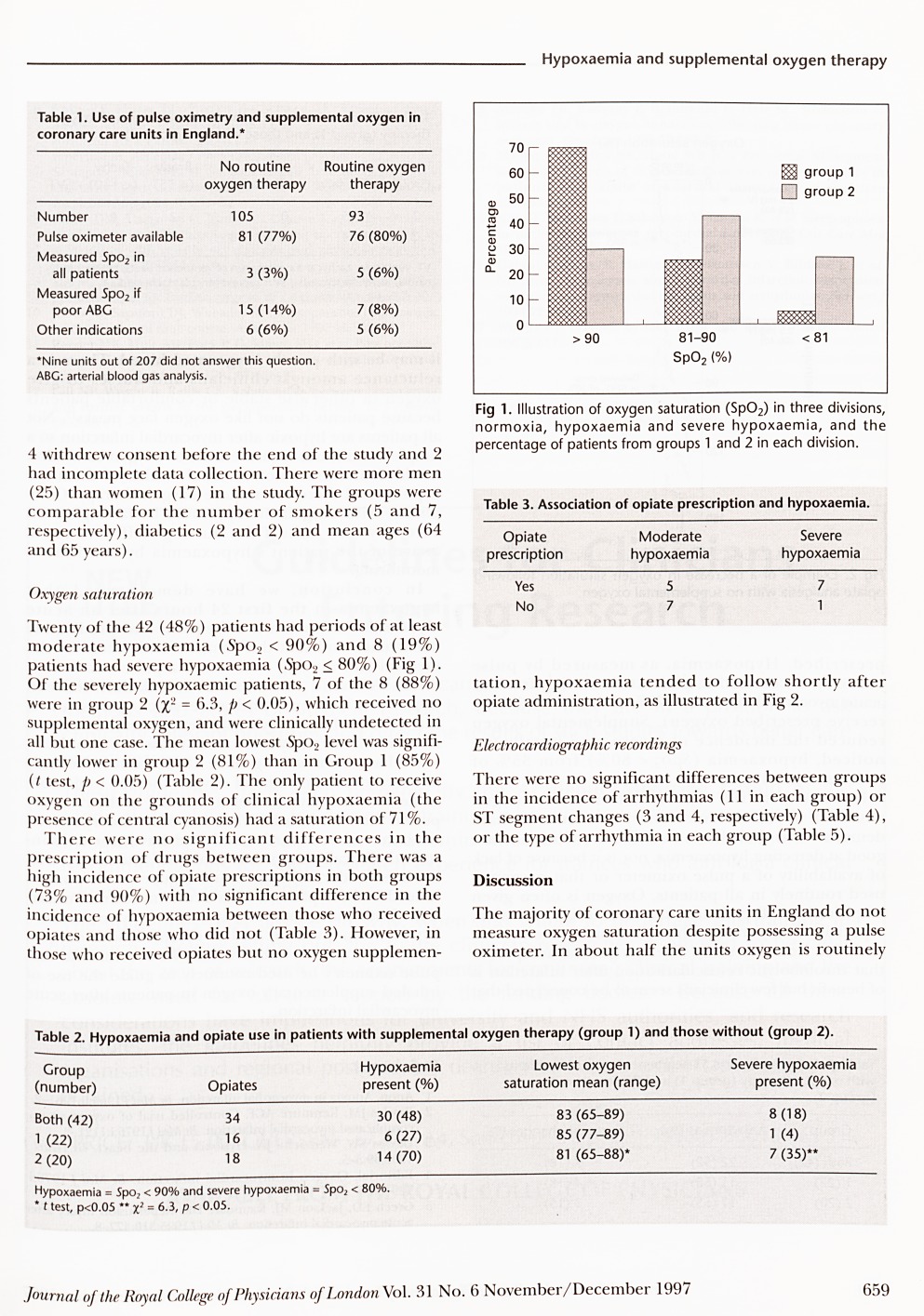
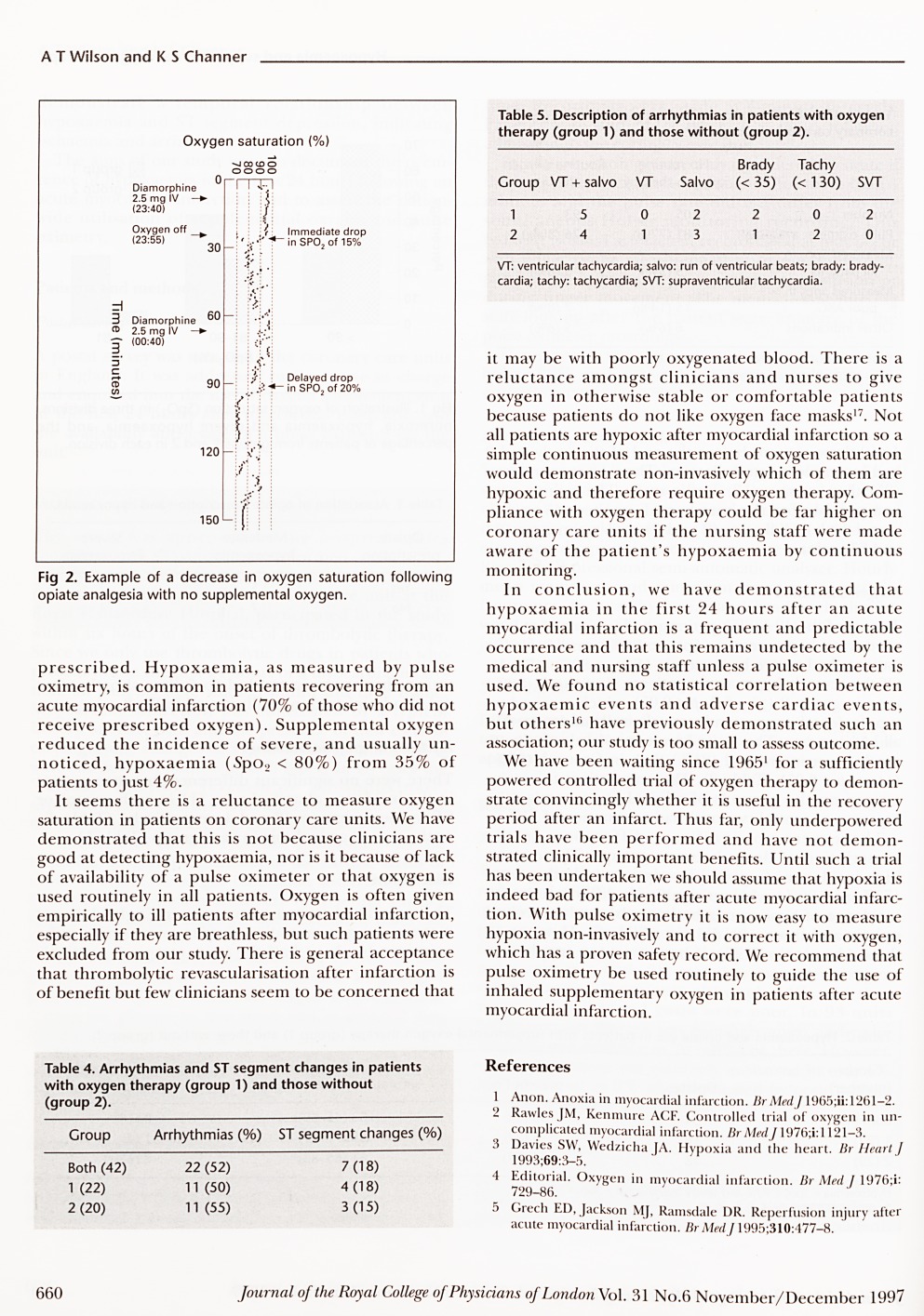
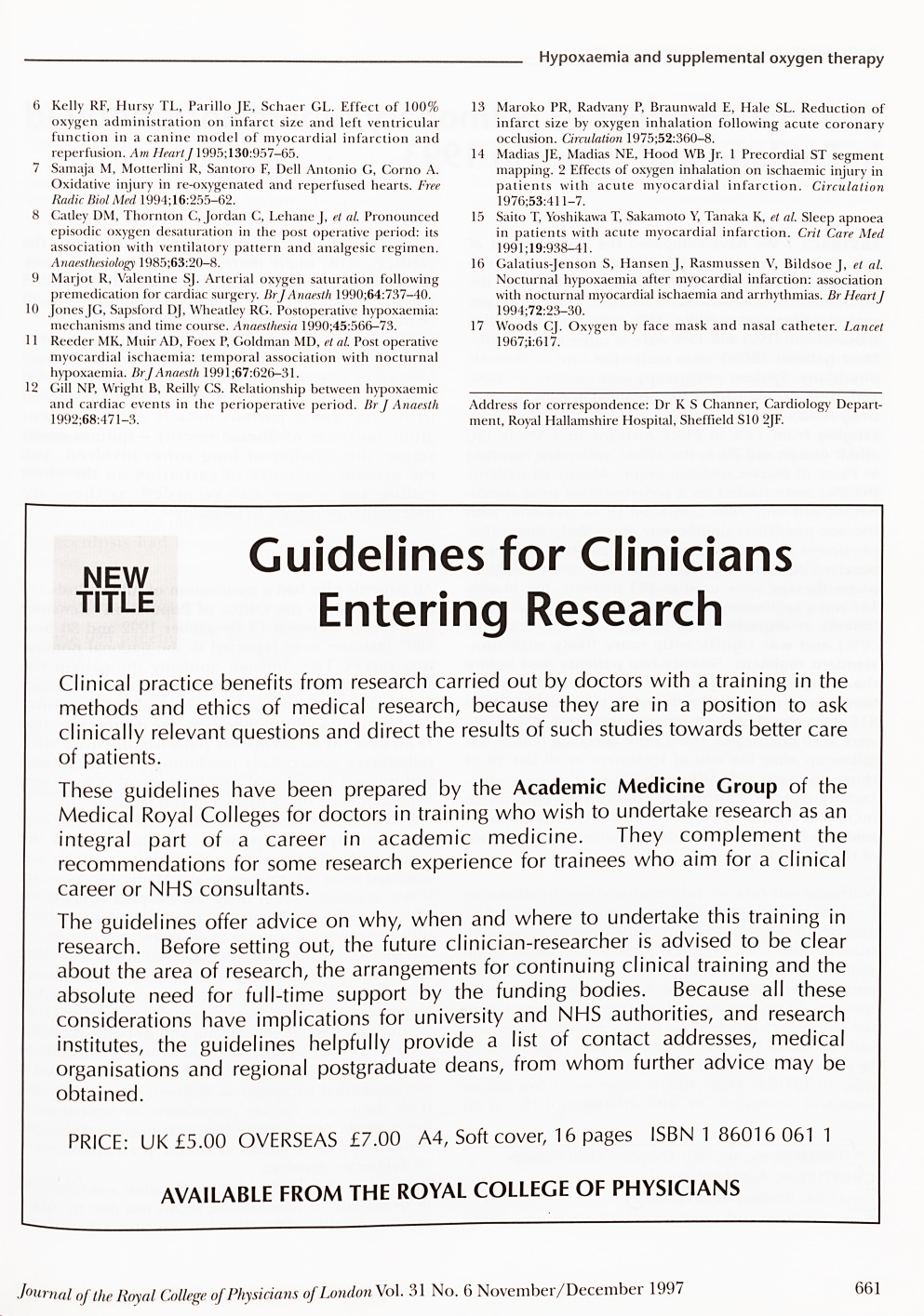
Contributor Information
A T Wilson, Consultant Anaesthetist in Intensive Care, Pinderfields Hospital, West Yorkshire.
K S Channer, Consultant Cardiologist, Cardiology Department, Royal Hallamshire Hospital, Sheffield.




